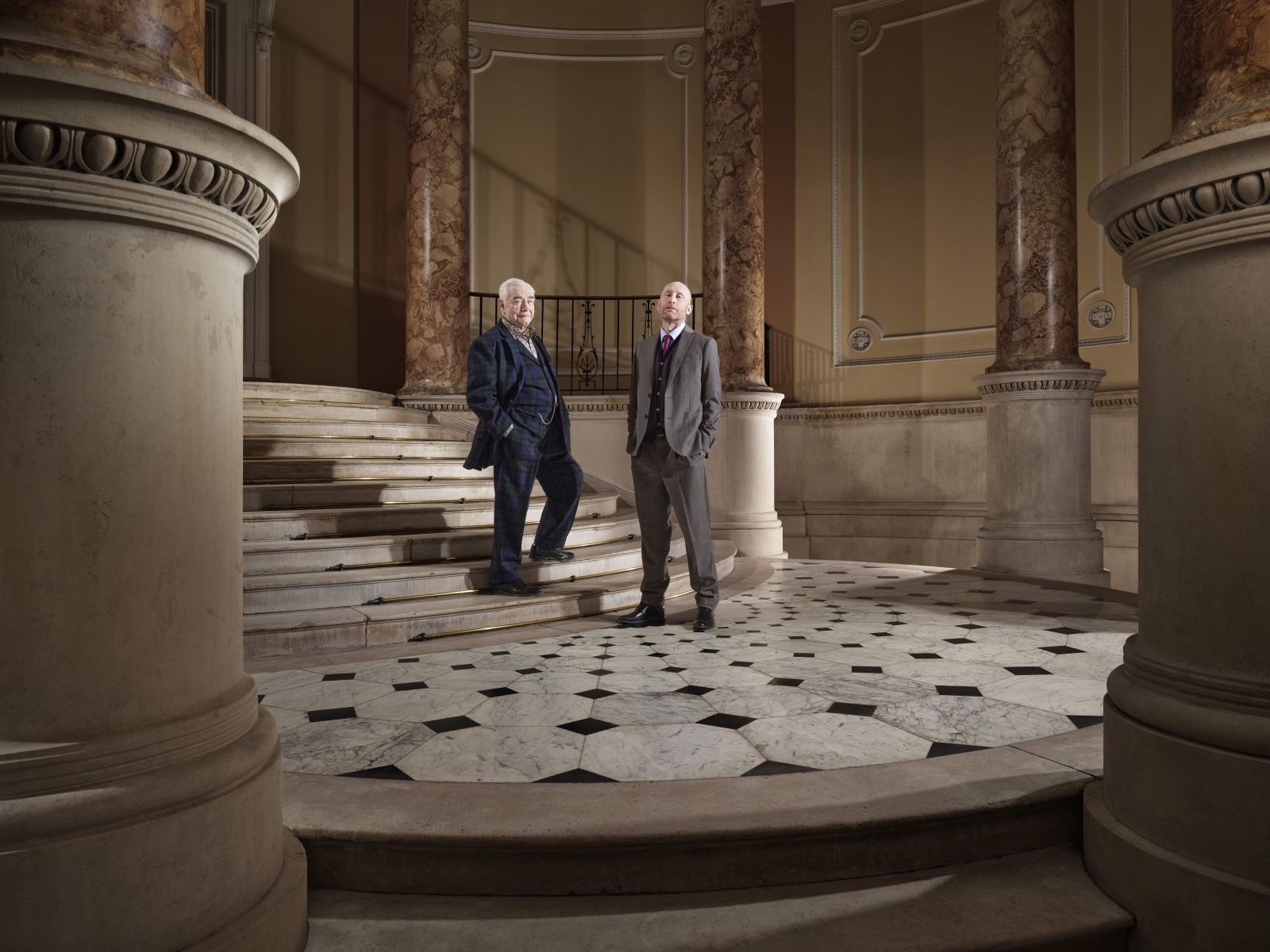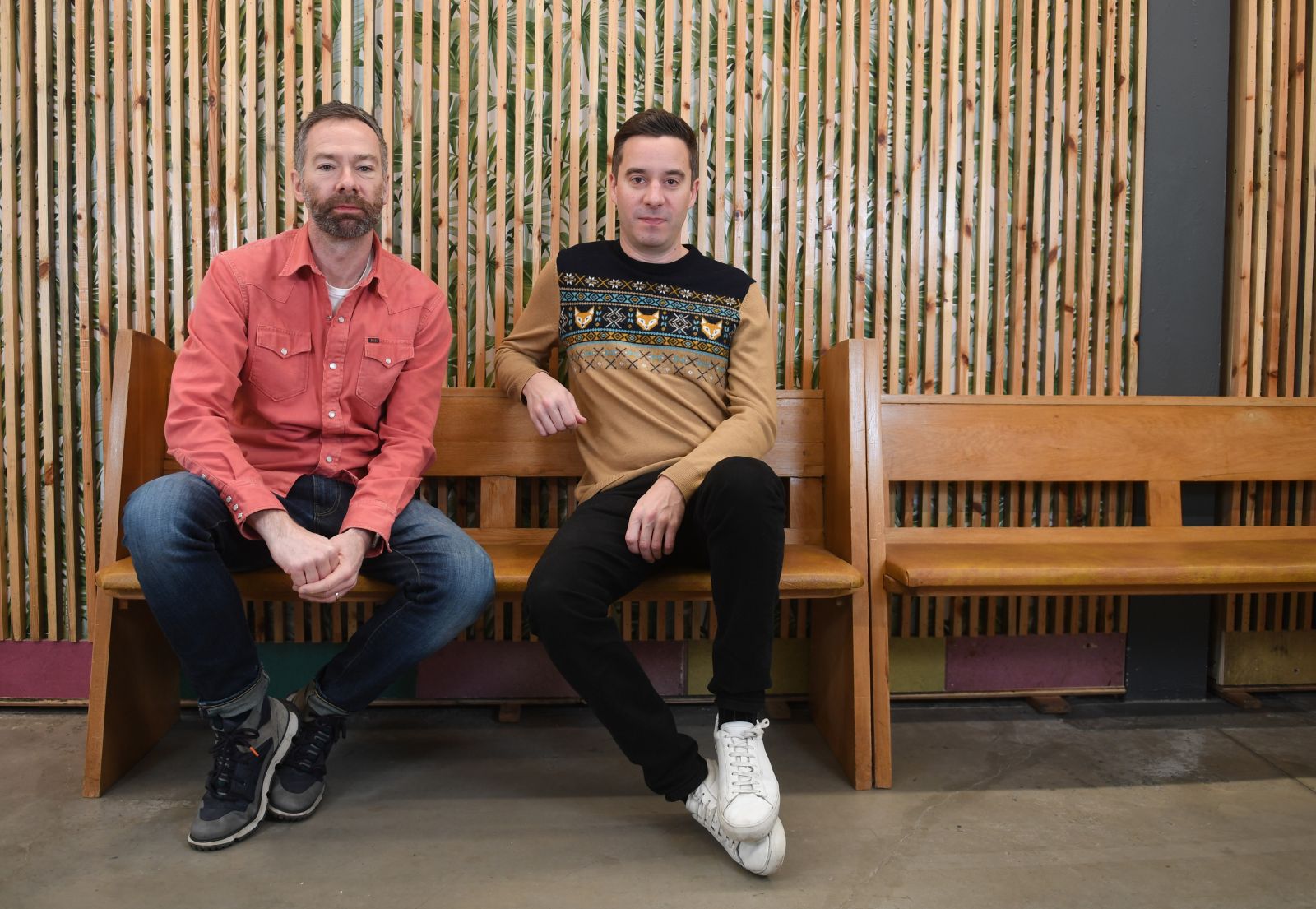James Graham on a good story: 'It allows you to interrogate whatever the anxiety of the day is'
With acting heavyweight Brian Cox on board, Make It Happen is primed to be one of festival season’s big hitters. Exploring Scotland’s key role in the 2008 global financial crisis, playwright James Graham tells Mark Fisher what drew him to this sorry fiscal tale

When you have a reputation for writing plays on topical themes, everyone has a story for you. Just ask James Graham. He is the prolific playwright whose work has ranged from the rise of the England men’s football team under Gareth Southgate (Dear England) to the Saturday-night fight in Nottingham that ended in a man’s death (Punch), and the army major accused of cheating on Who Wants To Be A Millionaire? (Quiz). On television, he has portrayed murders in a Nottinghamshire mining village (Sherwood), the role Dominic Cummings played in the Leave campaign (Brexit: An Uncivil War), and the rise of Lib Dem leader Nick Clegg (Coalition).
There are others besides. It means that whenever something makes it big in the news, people always think of him. ‘I’ve been inundated with Sycamore Gap ideas,’ he smiles. ‘Animated features, ballets, computer games... the happy marriage is when you find a banging story with an engine that drives, twists, turns and pushes, that somehow allows you to interrogate whatever the anxiety of the day is.’
Safe to say not every story captures his imagination. But one, in particular, did. It came from Andrew Panton, artistic director of Dundee Rep, who wondered what Graham would make of the 2008 crisis that led to the government bail-out of the Royal Bank Of Scotland (RBS). ‘If you get excitement about piecing together the jigsaw puzzle of post-war Britain, it feels like such a moment for us,’ says Graham. ‘And it’s a moment we’re not completely out of.’ Could it be that in Fred Goodwin, the Paisley-born chief executive who steered the bank from massive expansion to the brink of disaster, he would find a ready-made tragic hero? ‘The danger about doing plays about real people is it suggests that one person can change the course of history,’ says the playwright. ‘But Fred Goodwin is one example of a man who did seriously impact the country.’
.jpg)
Not long ago, a drama about acquisitions, stock markets and derivatives would have sounded like box-office poison. That was before the West End success of Enron, Lucy Prebble’s play about the collapse of the American energy giant, and The Lehman Trilogy, Ben Power’s drama about the roots of the sub-prime mortgage crisis. Their popularity reassured Graham that banking was no riskier a subject than, say, the England football team. ‘Dear England was terrifying because I couldn’t think of many examples where football had been put on stage and it not being the cringiest thing on earth,’ says Graham, whose Make It Happen is a co-production between Dundee Rep, Edinburgh International Festival and National Theatre Of Scotland. ‘At least it gives me some calm that there is precedent for theatre having interrogated finance and the economy.’
Fred Goodwin’s life has a classic rise-and-fall arc. Born in 1958, he was brought up in a Ferguslie Park council house, became the first in his family to go to university, and emerged as a high-flying chartered accountant and then a banker. It was his willingness to make ruthless cuts in his role as deputy chief executive of the Clydesdale Bank that earned him the nickname ‘Fred The Shred’. He joined RBS in 1998 and, having become chief executive in 2001, set about a series of acquisitions. It started with a £23.6bn takeover of NatWest (and with it, the loss of 18,000 jobs) and culminated in a £55bn bid for ABN Amro.
Under his watch, RBS became the fifth largest bank in the world, but only at a cost. The £350m bill for the RBS HQ at Gogarburn pales in comparison to the bank’s global spending spree. The expense left the organisation especially exposed to 2008’s financial crash. In February 2009, it posted a loss of £24bn, the biggest in British corporate history. By then, the government had stepped in with a rescue package, and Goodwin was out. Although the playwright is angry about the financial crash, he has no intention of demonising Goodwin, who is played by actor Sandy Grierson. ‘The play questions whether he was just symptomatic of a broader culture,’ states Graham. ‘If it wasn’t him, would it have been someone else? Was he too unfairly made the face of a much more widespread failure of regulation of the banking sector?’
Graham has usually met his real-life protagonists, but so far not Goodwin. ‘I would happily invite him into the rehearsal room or to meet me. I suspect, for all the obvious reasons, he will be feeling some scepticism and wariness about having this chapter in his life put on stage. But the play is about sincerely trying to understand what he was up to. I’m trying to be empathetic towards him. It’s a more interesting experience for the audience not to just paint him as a pantomime villain.’

He sees his role as filling the gaps that public institutions have left exposed. ‘Infamously, not a single individual was prosecuted for the biggest financial crash since the Great Depression and it was entirely man-made,’ says Graham. ‘The absence of parliamentary inquiries, court cases and law suits is where drama comes in. We can re-interrogate these things and try to understand people’s motivations and the flaws in the system.’
There was also another element of the story. On board from the start was actor Brian Cox, whose role as Logan Roy in Succession showed another side of the capitalist machine. Cox was insistent that a drama set among the bankers of Edinburgh had to acknowledge Adam Smith, the figurehead of Scottish Enlightenment economics. He thought it was too much of a coincidence that the author of The Wealth Of Nations, a man regarded as the father of capitalism, once walked the same streets as Goodwin, whose actions came to symbolise the excesses of a flawed financial system. ‘It unlocked it for me stylistically and tonally, having something a bit more gothic and operatic with echoes of the past,’ says Graham.
It also means not leaping to conclusions about a frequently misunderstood economist. It is a mistake to characterise Smith (played by Cox in Panton’s production) as the kind of free-market messiah championed by the right. He is more complex than that. Although he was in favour of the rights of the individual, he was also a moralist who respected the role of government in keeping tyranny at bay. ‘Different sides of the ideological spectrum have weaponised Adam Smith to sell a particular narrative,’ says Graham. ‘I’ve summoned Adam Smith into the 21st century to set the record straight in a bombastic and comedic way, which excited Brian and made it fun to write.’
For these reasons, Graham’s play could only be set in Scotland. ‘The mind-bending element of the financial crisis is that it was a Scottish story,’ he says. ‘How bizarre that at one time, the biggest banks in the world were in Edinburgh and we had a Scottish prime minister and a Scottish chancellor; but we can go even further back and it was a Scottish idea in the form of Adam Smith. Free markets, deregulation and capitalism were ideas born in the streets of Edinburgh and then shipped around the world. Capitalism was born in Edinburgh and nearly died in Edinburgh in 2008.’
Make It Happen, Festival Theatre, Edinburgh, Wednesday 30 July–Saturday 9 August, times vary; main picture: David Vintiner.